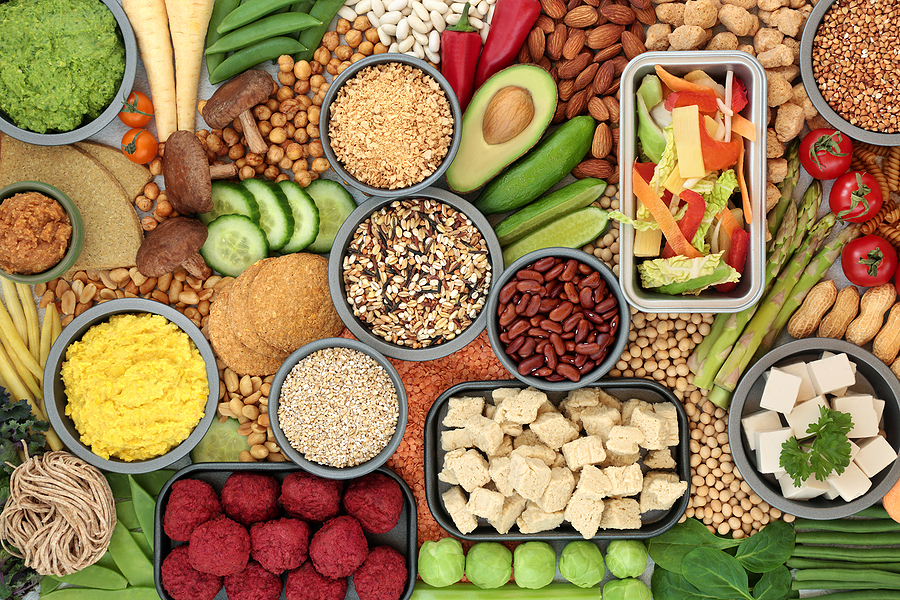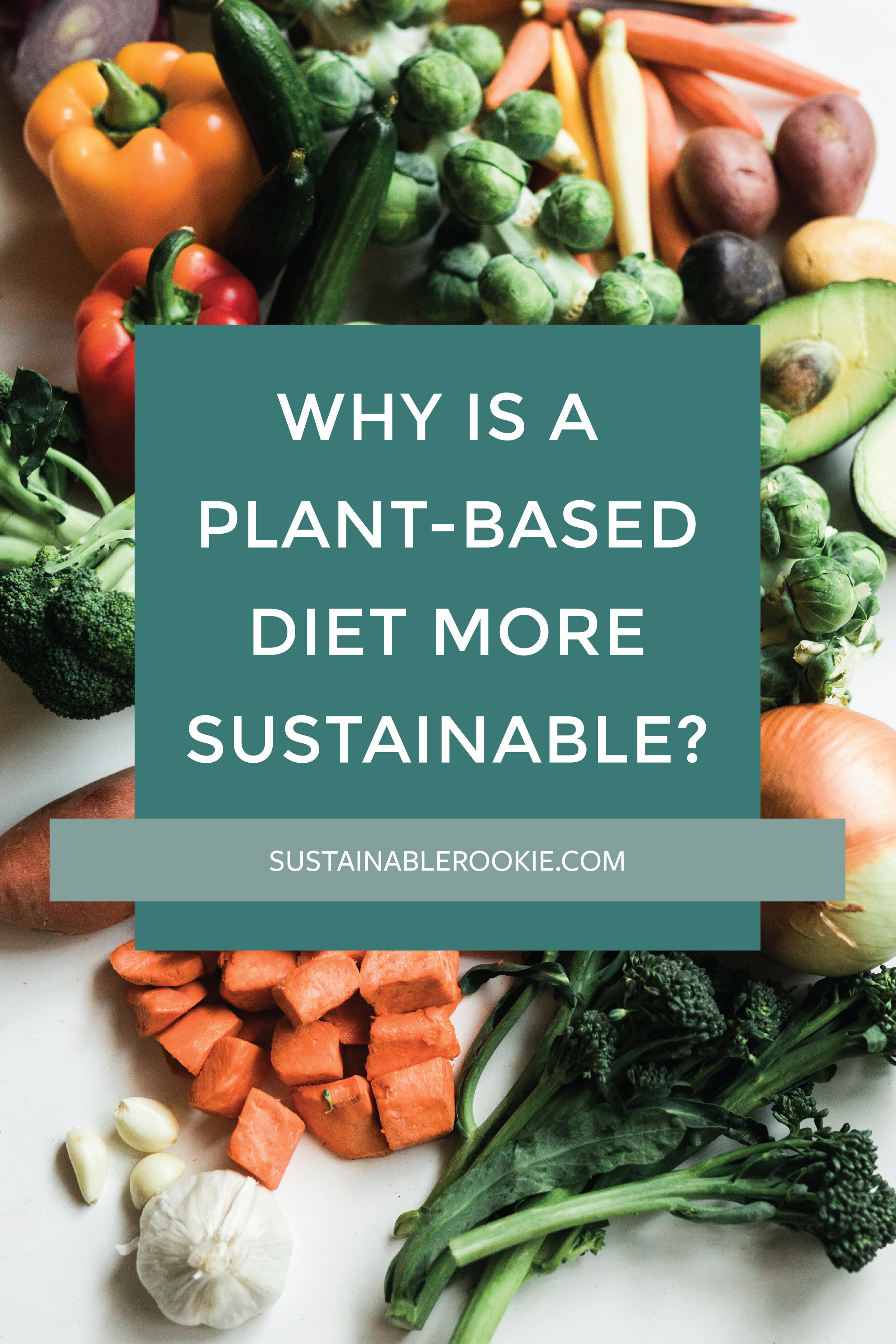Best Brands for Gluten Free BBQ Sauce in Portland
Best Brands for Gluten Free BBQ Sauce in Portland
Blog Article
All Regarding Healthy And Balanced Food: Advantages of Checking Out Plant Based Alternatives
The conversation surrounding plant-based diets has gotten considerable attention in recent years. Lots of individuals are exploring the potential wellness advantages, dietary advantages, and environmental impacts connected with these nutritional options. As people become extra aware of their food's impact on wellness and sustainability, questions emerge concerning the usefulness of embracing such a lifestyle. What specific adjustments can one anticipate, and how might these selections reshape not only individual health and wellness but additionally the world's future?
Understanding Plant-Based Diet Regimens
Several people link plant-based diet plans mainly with vegetarianism or veganism, these diet regimens can include a vast variety of consuming patterns that focus on whole, minimally refined plant foods. Such diet regimens commonly consist of fruits, veggies, entire grains, beans, seeds, and nuts, while limiting or removing pet items. This versatility enables individuals to customize their dietary selections according to dietary requirements and personal preferences. Some might take on a primarily plant-based diet plan while still sometimes consuming meat or dairy products, often referred to as a flexitarian method. The focus stays on incorporating even more plant foods, which can cause a diverse array of tastes and dishes. Understanding these numerous analyses of plant-based eating is essential for appreciating its availability and charm in contemporary food culture.
Health And Wellness Perks of Plant-Based Foods
The health and wellness benefits of plant-based foods are considerable, providing a nutrient density advantage that supports general health. Research study suggests that these foods can improve heart health and wellness and play an important function in effective weight monitoring. By incorporating much more plant-based alternatives, individuals might enhance their nutritional options and promote long-term wellness.
Nutrient Density Benefit
Nutrient thickness plays an important role in the health and wellness benefits of plant-based foods, making them a compelling selection for those looking for a well balanced diet regimen. Plant-based foods, such as fruits, veggies, beans, nuts, and whole grains, are commonly abundant in necessary vitamins, minerals, and anti-oxidants while being lower in calories. This high nutrient density allows people to consume fewer calories while still fulfilling their dietary requirements. Furthermore, these foods are loaded with nutritional fiber, promoting digestion health and helping in weight management. By integrating nutrient-dense plant-based alternatives, customers can improve their overall health, sustain their immune systems, and lower the threat of chronic illness. Ultimately, the nutrient density of plant-based foods emphasizes their importance in a health-conscious way of life.
Heart Wellness Improvement

Weight Management Assistance
In addition to advertising heart health, a plant-based diet regimen can considerably aid in weight monitoring. This dietary approach stresses whole foods such as fruits, veggies, vegetables, nuts, and entire grains, which are normally reduced in calories and higher in fiber contrasted to animal-based products. The high fiber material helps boost satiation, reducing overall calorie consumption. Furthermore, plant-based diet plans are typically rich in necessary nutrients while low in unhealthy fats, making it less complicated to preserve a healthy and balanced weight. Sugar Free Sauces. Study indicates that people who take on a plant-based lifestyle have a tendency to have reduced body mass indexes (BMIs) and experience more successful weight loss compared to those who take in meat-heavy diet regimens. Consequently, accepting plant-based alternatives is a strategic choice for efficient weight monitoring
Nutritional Value of Plant-Based Active Ingredients
Plant-based active ingredients are rich in necessary nutrients, offering a diverse range of vitamins, minerals, and antioxidants that add to total wellness. A contrast of healthy protein resources reveals that while animal products are frequently considered as remarkable, several plant-based choices supply appropriate healthy protein and other beneficial compounds. Recognizing the nutritional value of these components can help individuals site link make informed nutritional choices.
Important Nutrients in Plants
Nutrient-rich components found in plants offer a varied array of essential vitamins and minerals that add considerably to general health and wellness. These components are rich in vitamins A, C, and K, which sustain immune feature, vision, and blood clotting, respectively. Additionally, plants give crucial minerals such as potassium, calcium, and magnesium, essential for heart health, muscle mass feature, and bone stamina. The presence of fiber in plant-based foods help digestion and advertises a healthy gut microbiome. Anti-oxidants, discovered perfectly in vegetables and fruits, assistance combat oxidative stress and anxiety and minimize swelling. In addition, numerous plant foods are reduced in calories yet high in nutrients, making them an exceptional option for those seeking to keep a healthy weight while ensuring suitable nutrient intake.
Contrasting Protein Resources
Protein sources differ substantially in their dietary profiles, with plant-based ingredients supplying one-of-a-kind benefits. Unlike animal healthy proteins, which usually have hydrogenated fats and cholesterol, plant proteins often tend to be reduced in these unhealthy components. Legumes, nuts, seeds, and entire grains are rich in important amino acids, fiber, vitamins, and minerals. Lentils offer high healthy protein content along with considerable iron and folate, while quinoa is a complete healthy protein, providing all 9 vital amino acids. Furthermore, plant-based proteins are often come with by antioxidants and phytochemicals that sustain overall health and wellness. The shift to plant-based healthy protein sources not only boosts nutritional consumption but likewise aligns with lasting nutritional practices, minimizing environmental effect and promoting long-lasting wellness benefits.
Ecological Impact of Plant-Based Eating
As awareness of climate adjustment grows, lots of people are checking out lasting nutritional options that can greatly minimize their ecological impact. Plant-based eating has arised as a significant contributor to minimizing greenhouse gas exhausts, which are primarily connected with animals manufacturing. The cultivation of fruits, beans, grains, and vegetables usually needs less sources, such as water and land, contrasted to pet farming. Additionally, plant-based diets can result in reduced deforestation, as much less land is required for grazing livestock or growing animal feed. By moving in the direction of plant-based choices, customers can sustain biodiversity and advertise much healthier ecological communities. Overall, embracing plant-based eating not just advantages individual wellness yet likewise stands Go Here for a crucial action toward environmental sustainability and conservation efforts.
Overcoming Common Misconceptions
While many individuals identify the advantages of a plant-based diet regimen, numerous false impressions commonly discourage them from fully welcoming this way of life. A common belief is that plant-based diets do not have enough healthy protein; nevertheless, various plant sources, such as legumes, nuts, and tofu, give enough healthy protein. Furthermore, some assume that this diet regimen is expensive, when as a matter of fact, staples like beans, rice, and seasonal veggies can be rather cost effective. One more misunderstanding is that plant-based eating is extremely limiting, whereas it actually supplies a diverse array of foods and tastes. Several fret that a plant-based diet may lead to shortages, yet with appropriate preparation, individuals can get all required nutrients, consisting of vitamins and minerals, while appreciating a broad selection of delicious dishes.
Tips for Transitioning to a Plant-Based Way of life
Making the change to a plant-based lifestyle can be an improving experience, though it frequently calls for some guidance to navigate the first changes. Initially, people are encouraged to begin progressively, incorporating more fruits, veggies, legumes, and whole grains right into their dishes while reducing meat and milk consumption. Meal planning is crucial; preparing an once a week food selection can help relieve the modification and protect against final unhealthy choices. Checking out brand-new dishes and cooking approaches can additionally enhance the experience and maintain excitement regarding plant-based eating. Furthermore, joining support system or neighborhoods can supply inspiration and share useful ideas. Remaining educated regarding nourishment assurances balanced meals, preventing shortages while promoting a healthy, rewarding plant-based lifestyle.

Delicious Plant-Based Meal Concepts
Discovering delicious plant-based dish concepts can inspire individuals to accept a much more nourishing diet plan. One prominent option is a hearty quinoa salad, including cherry tomatoes, cucumber, and a vibrant lemon-tahini dressing. One more fave is a full-flavored lentil stew, packed with carrots, celery, and aromatic herbs, best for a comforting dinner. For breakfast, overnight oats made with almond milk, chia seeds, and topped with fresh berries supply a nourishing begin to the day. Additionally, a lively veggie stir-fry with tofu and a selection of vivid veggies can be a fast yet pleasing dish. Finally, creamy avocado toast on whole-grain bread, sprinkled with flavors and seeds, uses a simple yet flavorful snack. These meals showcase the variety and richness of plant-based eating.

Often Asked Questions
Can a Plant-Based Diet Regimen Supply Enough Healthy Protein?
The question of whether a plant-based diet regimen can supply sufficient healthy protein prevails. Countless sources, including vegetables, nuts, seeds, and whole grains, can satisfy protein requires effectively, sustaining a nutritious and well balanced diet for people.
Are Plant-Based Diets Appropriate for Children?
The suitability of plant-based diet regimens for kids relies on careful preparation. Adequate nutrients need to be guaranteed, including minerals, proteins, and vitamins. With proper support, such diets can support healthy and balanced growth and advancement in youngsters.
How Do I Eat Out on a Plant-Based Diet?
Eating in restaurants on a plant-based diet plan entails seeking restaurants with varied food selections, requesting for alterations, and exploring vegan-friendly choices. Preparation in advance and communicating dietary choices can boost the eating experience while maintaining dietary options.
What Are Usual Irritants in Plant-Based Foods?
Common allergens in plant-based foods include soy, gluten, nuts, and seeds - BBQ Sauces. Individuals following a plant-based diet plan must understand these irritants and read labels thoroughly to prevent negative responses and assure secure intake
Can Plant-Based Diets Aid With Weight Reduction?
Research suggests that adopting a plant-based diet may help with weight-loss because of its normally reduced calorie thickness and greater fiber material. This combination can enhance satiety, helping people handle their calorie intake efficiently. Numerous people associate plant-based diet regimens mostly with vegetarianism or veganism, these diet regimens can include a large variety of eating patterns that prioritize entire, minimally refined plant foods. Nutrient density plays an important role in the health advantages of plant-based foods, making them an engaging choice for those seeking a well balanced diet plan. Plant-based diet regimens have been shown to considerably improve heart wellness, as they usually consist of aspects that support cardio function. In addition to advertising heart health and wellness, a plant-based diet regimen can considerably assist in weight administration. A common idea is that plant-based diet plans do not have adequate protein; nonetheless, many click here for more info plant sources, such as beans, nuts, and tofu, offer ample healthy protein.
Report this page